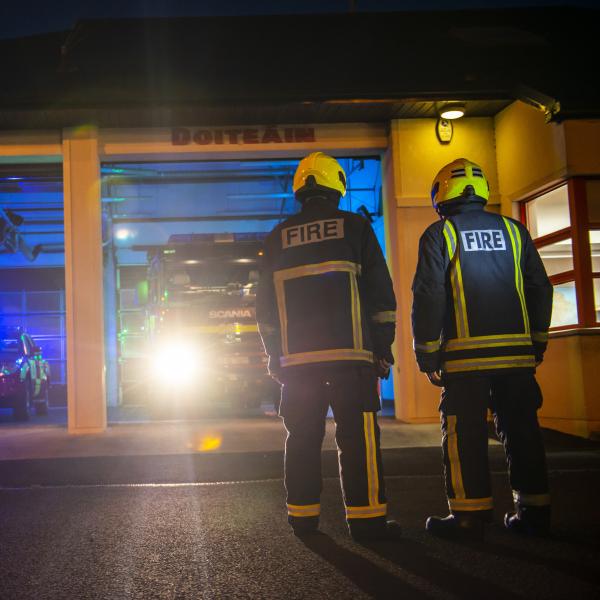
Emergency services
Local authorities help to keep communities safe by providing vital emergency services. These services include fire services, Civil Defence, water safety, and responding to major emergency and severe weather events. Staff and volunteers in the emergency services work tirelessly to prevent accidents, respond to emergencies, and ensure everyone in their community is safe.
In this section
Fire services
Fire fighters work to reduce injury and death, protect properties, and safeguard the environment when an emergency takes place. The fire service operates through the local authority to respond to fires, road traffic accidents, floods, chemical and hazardous incidents, and other emergencies.
Services provided by the fire service include:
- Fire and rescue emergency response
- Fire prevention including issuing fire safety certificates and reviewing licensing applications and planning applications
- Building inspection and enforcement to ensure buildings comply with regulations and controls
- Building public awareness of fire safety and prevention
If you have an emergency and require the assistance of your local fire service, dial 999/112 and ask for the fire service.
If you are interested in joining your local fire service as a full-time fire fighter or a retained fire fighter, you can find open opportunities on LocalGovernmentJobs.ie.
Civil Defence
Civil Defence volunteers support front line emergency services in areas such as medical response, emergency response, search and rescue, radiation monitoring, and community assistance. The Civil Defence is a national volunteer-based organisation facilitated through the local authorities.
If you are interested in becoming a volunteer with the Civil Defence, you can join and access training through your local authority. To request information on becoming a Civil Defence volunteer or have a member of Civil Defence member contact you, you can submit a request through the Civil Defence website.
Water safety
Water safety is incredibly important for preventing accidents and loss of life in the water.
Local authorities work to educate people about water safety, prevent accidents, and respond to emergencies through water safety initiatives.
Water safety initiatives managed by local authorities include:
-
Providing lifeguards at beaches and other outdoor swimming areas during the summer season
-
Providing and maintaining ring buoys on bridges, piers, and beaches
-
Providing water safety information and advice
-
Running water safety initiatives in partnership with Water Safety Ireland including training courses and safety campaigns
Responding to emergencies
Keeping residents safe is a key priority for local authorities, and having plans in place to respond to emergency events is an important step in protecting people from injury and loss of life.
Severe Weather Emergency Response
A fast and co-ordinated response in severe weather emergencies is important for protecting life, infrastructure, and property. Local authorities work with public agencies and emergency services to respond to severe weather events including storms, floods, and heavy snowfall.
This includes preventing disruption from these events, providing weather updates, providing flood relief, evacuation of residents and animals, and clearing debris, snow, and ice from major routes.
Major Emergency Management
A major emergency is an event that occurs with little or no warning, threatens injury or death, damage to property, or causes a major disruption to essential services and infrastructure, and has the potential to go beyond the resources of a single primary response agency.
Local authorities are among the principal response agencies designated by government to respond to major emergencies. The other principal response agencies are An Garda Síochána and the Health Service Executive.
The principal response agencies develop emergency plans to coordinate the response to emergencies.